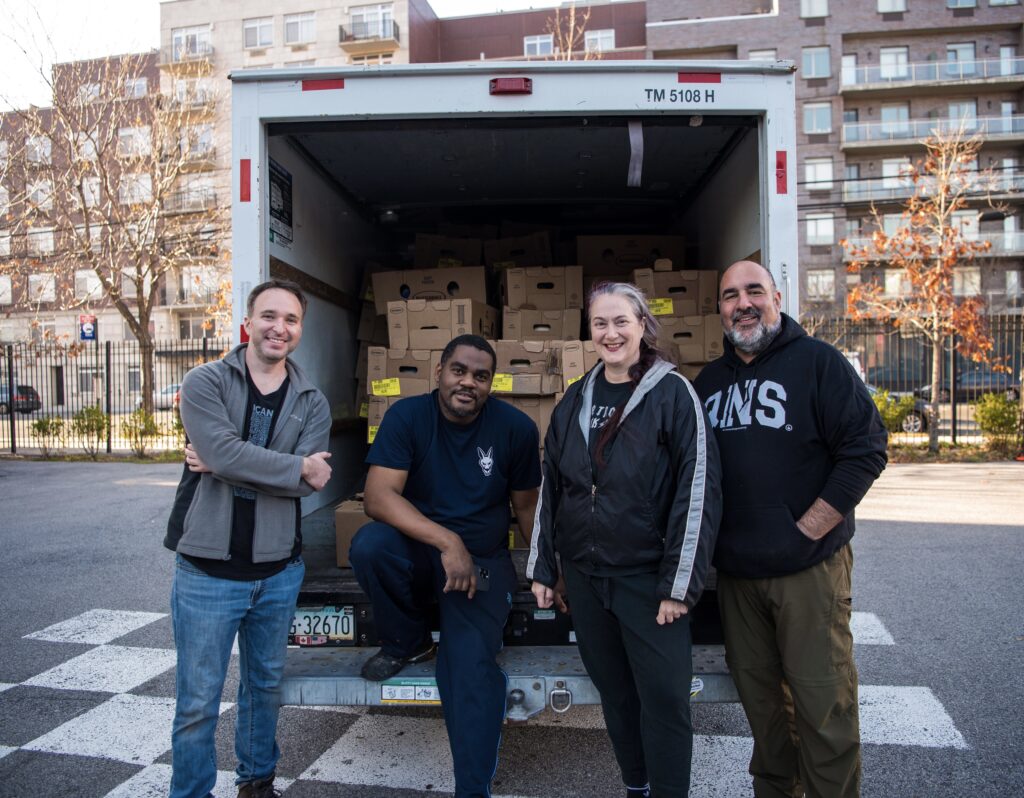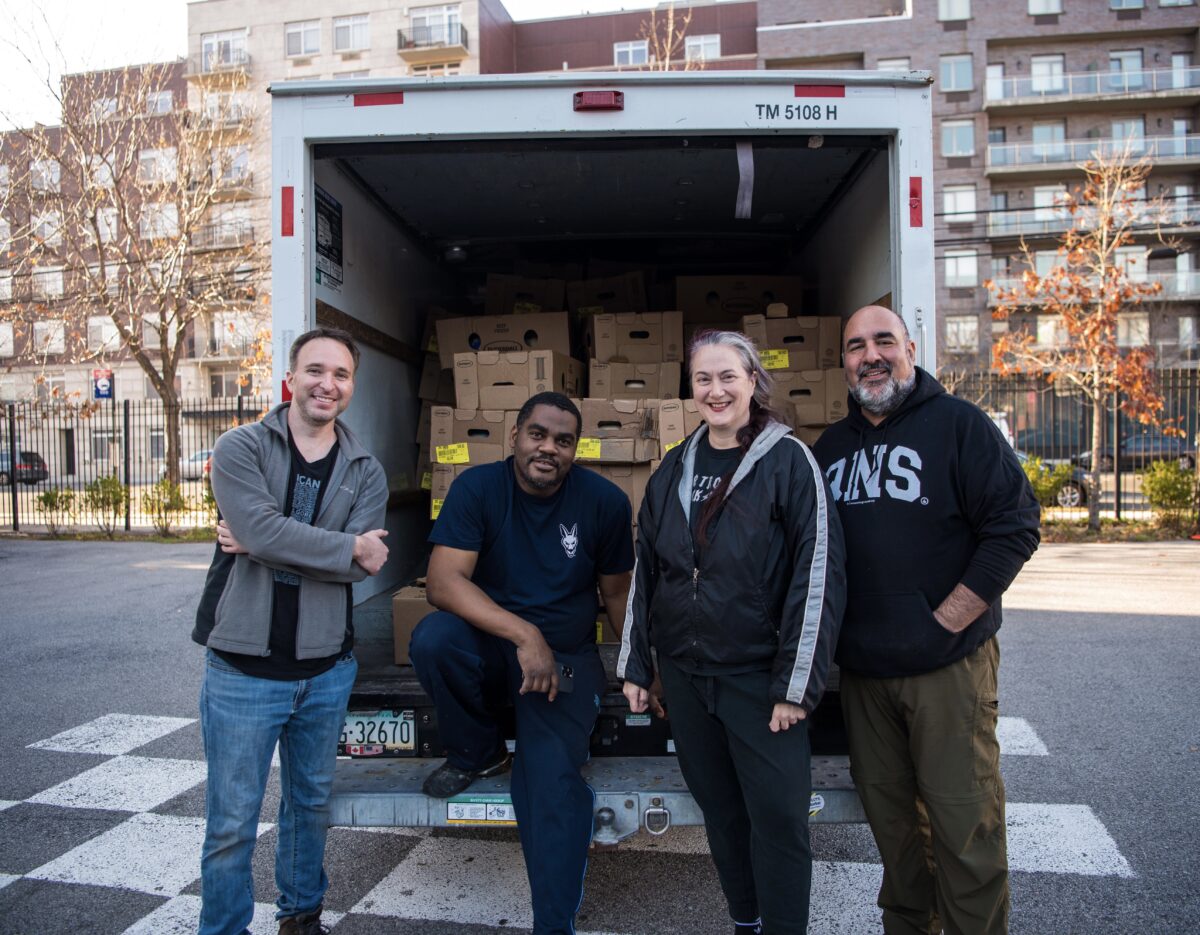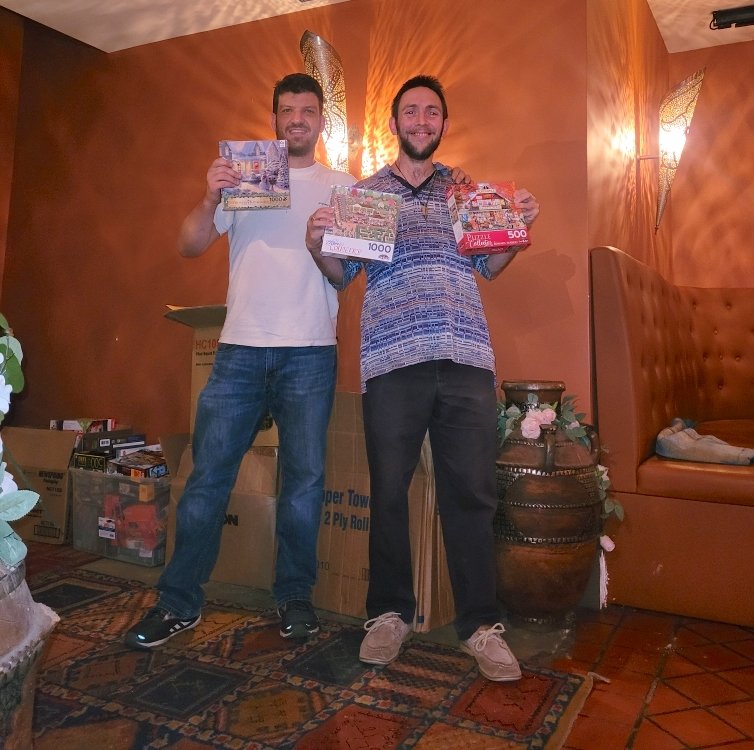Eats in Queens Restaurant Month Tackles Food Insecurity
By Iryna Shkurhan | ishkurhan@queensledger.com

Jonathan Forgash, far right, works with volunteers to deliver food to local residents.
This March, Eats In Queens Restaurant Month partnered with over 200 diverse eateries across the borough — and raised thousands for local food relief.
Unlike NYC Restaurant Week, a twice-yearly event that offers discounted pre-set menus at restaurants across the city, the organizers of EIQ wanted to do more than help restaurants gain business during the slow season. Their goal was generating funds for food relief through restaurant promotion and partnership.
The event was formulated by Jonathan Forgash, Executive Director of Queens Together, along with volunteers who share a passion for the multinational Queens restaurant scene. They set out to address food insecurity in their neighborhoods that affects Queen’s most vulnerable residents — Black, Latino and Asian New Yorkers, as well as recent or undocumented immigrants, older adults and those with children.
So far, Queens Together, the nonprofit organization behind the event, raised $30,000 to address food insecurity through individual donations. Their model provides patrons with a discount at all participating restaurants with a minimum of a $25 donation to the organization.
“It wasn’t just about promoting the restaurants. I saw it as an opportunity to encourage people to donate for food relief,” Forgash said in a phone interview. He says that the main goal of Queens Together is “creating a powerful voice to fight for our needs” by cultivating the resources necessary to be impactful in the community.
Forgash, a longtime Astoria resident with over 30 years of experience in the food and restaurant industry, started providing food relief to Queens residents during the early days of the pandemic. He and other volunteers raised money through social media to pay restaurants to prepare meals for local hospitals. They pivoted to feeding neighbors who were sick at home or out of work, all with the help of restaurants who lost all their dine-in business overnight and were grateful to generate income while supporting their neighbors.
“Everyone came together during COVID to help the people who needed it most. And it was really beautiful to see,” said Forgash, who estimates that they fed 300,000 neighbors in need over the course of three years.
In March 2020, Beatrice Ajaero was days away from opening the doors of her West African restaurant, Nneji, in Astoria. The focus immediately shifted to providing food relief to her neighbors, some of whom lived in districts hit hardest by high COVID rates, Queensbridge and Astoria.
“It was really difficult, I think, to separate that reality from our opening,” said Ajaero, who worked with Forgash to distribute groceries and hot meals to residents in western Queens throughout the pandemic.
Since then, the goals of her restaurant are inseparable from the goals of feeding the community in a way that is culturally in tune. She believes that the most effective way to provide food relief in an immigrant haven like Queens is through aligning food aid with the recipient’s culture or restrictions. This can be achieved by partnering with community and faith organizations that know the needs of the group they represent the best.
“For someone who’s come through many, many, many, miles, the added stress of having to try to nourish themselves with food that doesn’t speak to them, that is not from their cultural background, it’s very, very difficult and sort of poses an added layer of challenge and distance,” said Ajaero.
Today, Nneji is one of the restaurants part of EIQ Restaurant Month and is offering patrons a ten percent discount. She says that the restaurant’s participation in the event has already brought more diners through her doors.
Ralph Trionfo, 53, is a longtime Jackson Heights resident and part time Queens Together volunteer. In his full time role he works as a liquor representative for Empire Merchants based in Astoria. But his proximity to the restaurant industry in his daily work gave him the opportunity to solicit restaurants.
“When we were in the pandemic, my biggest joy or source of happiness came from working with Jonathan and Queens Together, providing food relief for my neighbors,” Trionfo said. “Now they know that the organization has legs, and it’s not going anywhere, we’re gonna keep moving forward. Meaning they can count on us.”
Spanish speaking volunteers with Queens Together worked to recruit Hispanic restaurants in Elmhurst, Corona and Jackson Heights to participate. And Gordon Yu, a Queens native fluent in Chinese, went door to door in Flushing where he could relay the mission of the event more effectively. His efforts resulted in 17 partnerships with restaurants in Flushing.
“Addressing the food access issue is really top of mind because when we can empower families with nutritious ancestral meals prepared by local restaurants who have local suppliers who often have local employees, the recirculation benefits are really powerful,” said Ajaero.





